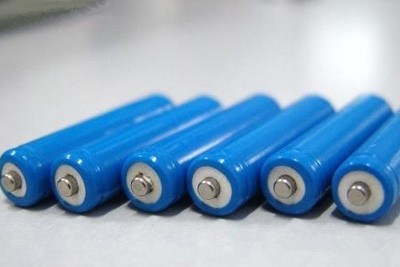Li-ion Battery Operating Temperature
Aug 14, 2019 Pageview:6851
Lithium-ion batteries happen to be one of the most significant technologies in today’s green energy initiative. That is because they feature a high energy density, safe operation, long lifetime, and affordable cost. This means that li-ion batteries are in our everyday handheld electronics, electric vehicles and other space applications.
However, with lithium batteries, temperature control is very crucial. The reason being, the safety, health and performance of the battery depends majorly on the temperature. Diverse operating temperatures of the lithium battery tends to affect its overall performance over a long period of time. In worst cases, leading to degradation and permanent damage to the battery.
And just like the majority of people, Lithium batteries fare best in comfortable temperatures. This is to mean that extreme cold or heat could affect the performance as well as the charge and discharge rate of the batteries. Therefore, in this article, we will discuss the operating temperatures of Lithium-ion batteries and how it affects its performance and capacity.
Effect of Temperature on the Aging Rate of lithium-ion Battery Operating Above Room Temperature
Operating Li-ion battery above room temperatures without a doubt affects the conventional chemistry of the Lithium-ion battery. Li-ion batteries especially are enemies with extreme heat. As we can see from the numerous approaches given by most companies, one of the best ways to improve battery life is by beating extreme heat.
According to the research our company has done on Lithium-Ion batteries, they will last longer if they are left to operate between -10 and +30 degrees Celsius. In very cold temperatures, the batteries will not reach their full-rated power unless the batteries are warmed up. On the other hand, in extreme temperatures that are hotter than average room temperature, the batteries will reduce their ability to store energy.
In simple terms, we would say that the hotter the temperature, the faster the battery will lose its ability to store energy. This means that people living in hotter areas are likely to go replacing their batteries often. But that’s not to mean there is no solution.
There are a number of ways that you can use tospecial extreme temperatures. This will help to keep the batteries operating at optimal temperatures for a long period of time. For instance; you can use thermal management systems that use liquid and air cooling. The best option, however, is liquid cooling as it preserves the capacity of the battery as compared to the air cooling system.
Research done by Ford shows that when liquids are used in cooling systems, they do a better job in temperature retention for a longer period of time. That is why Ford uses liquid cooling in their Ford Focus Ev. Also, a couple of other globally known manufacturers use liquid cooling to preserve their batteries.
Besides affecting the battery’s usable life, operating batteries at an extreme charge and discharge rates can impact the battery negatively. That means that if it is done every other day, it could generate enough heat that in the end will reduce the battery’s capacity.
What Temperature Range Can Lithium-ion Battery Withstand Before Damage?
As discussed above, Li-ion batteries cannot withstand extreme temperatures. This means that they should not be exposed to extreme cold or hot temperatures. In the cold, the internal dependence of the batteries increases leading to a voltage drop in the batteries. This becomes more pronounced when the temperature gets to -20 degrees Celsius or less.
At this temperature, you will get a reduction of the cell capacity. But when it gets to temperatures below -50 degrees Celsius the battery will experience an irreparable type of damage in the internal separators found in between the cells.
On the other hand, exposure to high temperatures is damaging to the cell too. That is why the upper limit the lithium-ion battery can withstand before damage is between 70 to 90 degrees Celsius. Temperatures higher than this could lead to permanent damage to the lithium cells.
However, with the continued intensive research on batteries, most vendors have raised the high-temperature exposure limit to 100 degrees Celsius. And the best thing is that this is done without causing any damage to the life cycle of the battery. This is by creating a blend of iron phosphate and metal oxide formulations.
Hence, these new cell varieties with a little insulation technique and innovative packaging have brought Li-ion batteries to the front line in the market.
What do you do to Control Lithium-ion Battery Operating Temperature?
Operating temperature, just like cycling affects the longevity of a lithium-ion battery. This means that its suicide to keep a fully charged lithium-ion battery in extremely elevated temperatures. While the battery packs will not die overnight, such routine will gradually interfere with the capacity of the battery.
Therefore, to control the operating temperature of your battery and preserve its life, you need to follow the tips below;
· You can lower the charge voltage rates as they prolong the battery life. This is whatspecials and electric vehicles take advantage of.
· When connected to an AC grid, you can lower the charge voltage but that means your device should at least feature a long-life mode.
· Keep the batteries at room temperatures at all times. This should be between 20 and 25 degrees Celsius. Lithium batteries don’t agree well with high temperatures when they are fully charged.
· Never charge your mobile devices in the car when the temperatures outside are too high.
Final Thoughts…
Without a doubt, temperature is a very crucial factor when it comes to the health and safety of lithium-ion batteries. You will realize that Li-ion batteries age at different rates when exposed to a wide range of temperature. Increase in the operating temperature of Lithium-ion batteries tends to increase the degradation of all the components within the LiB.
This is inclusive of the battery’s ability to store maximum charge. That being the case, to ensure the extended life of your lithium-ion battery, ensure that you avoid overloading it, keep off from high voltage and use the battery within the stated healthy temperature range.
- Prev Article: Discussion on lithium-ion battery safety precautions
- Next Article: Discussion on Lithium Battery Safety Standards
Leave Message
Hottest Categories
-
Hottest Industry News
-
Latest Industry News











